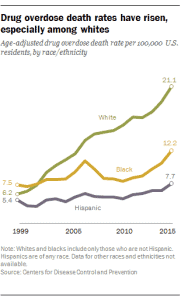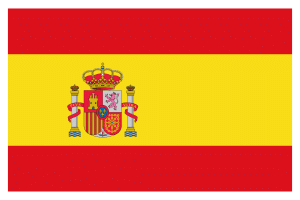
Opiate Addiction – Costa Rica Treatment Center – International Rehab
What is opiate addiction?
Opiate addiction is a serious condition that is impacting an estimated 2 million American adults. Thousands of people are dying as a direct result of the opioid epidemic and many more are struggling daily to live addicted to the powerful drugs heroin, hydrocodone, oxycodone, fentanyl and methadone. Sadly, many who suffer from opiate addiction are struggling as a result of a prescribed medication that they took for legitimate pain. Many others suffer due to self-medicating an illness or injury, or simply as a result of having used drugs to wipe out emotions.
No matter what your story is, if you’re addicted to opiates, the pain you feel and the struggles you suffer from on a daily basis are very real! We realize that you may not think anyone else understands, but at Costa Rica Treatment Center, we do understand what you are going through-and we DO want to help. Call 1-800-708-3656 to speak with a treatment specialist about your condition today.
Types of Opioids
Opioids are a class of drugs that evoke powerful pain relief when they interact with the brain. Overuse or use of opioids when there is no pain, can lead to euphoric effects that may cause the user to repeatedly misuse the drug in an effort to reach that initial “high.” The most common types of opioids include:
- Codeine
- Fentanyl (also called Actiq, Duragesic, Fentora)
- Hydrocodone
- Oxycodone
- Hydromorphone (also called Dilaudid)
- Meperidine (also called Demerol)
- Methadone
- Morphine
- Heroin (a street drug with no known medical use)
These drugs are found in various forms including synthetic, semi-synthetic and naturally occurring. Morphine is a natural opiate that is found in the poppy plant. Semi-synthetic, or manmade opiates such as hydromorphone are produced in conjunction with derivatives from the poppy. In addition to those, there are also synthetic opiates that are fully produced in a lab. These include drugs like Tramadol and methadone.

Dangers of Opiate Abuse
Opiates are highly effective at controlling pain, but long-term use of them can create serious hazards for your health. Dangers of opiate abuse include things like addiction, dependence, and health problems such as heart failure or overdose. Side effects include:
- Drowsiness that could lead to coma.
- Paranoia which could lead to irrational behavior.
- Respiratory depression which could lead to death.
- Permanent brain damage.
- Lung damage.
The greatest dangers of opiate use come from abusing opiates through a means of increasing their effectiveness. Crushing and snorting pills, injecting the drugs, or smoking the drugs can produce the most euphoria and also the greatest risk for overdose or other health consequences.
Recognizing Opiate Abuse
Abusing opiates such as heroin or hydrocodone comes with a laundry list of potential risks. Early detection of problematic behaviors is key to overcoming the disease of addiction. If you are prescribed an opiate, such as Oxycodone or Hydrocodone for legitimate pain, you could still be abusing the drugs. Below are some signs of abuse of a prescription medication:
- Taking more than prescribed.
- Taking more frequently than prescribed.
- Taking for reasons other than prescribed.
- Seeking more prescriptions than you need.
- Asking your doctor for other medications to “pair” with your medication for greater euphoria.
- Doctor shopping – seeking drugs from more than one medical provider.
- Running out of medication before the refill date.
- Seeking early refills on medications that are prescribed.
Additionally, those who are not prescribed opiates are likely to abuse medications that are given to them by friends or family members. If you are not prescribed an opiate, but you are actively taking opiates to control pain or for other reasons, you are at risk of addiction. Common signs of opiate abuse among those who are not prescribed medications include:
- Taking opiates for underlying health problems without a doctor’s approval.
- Taking opiates to cope with mental or emotional upset or trauma.
- Using opiates that you purchased off the streets or from a friend or family member.
- Injecting opiates or snorting opiates.
- Using heroin.
Long Term Effects of Opiate Abuse
Repeat use of ANY opiate will most certainly lead to dependence. In fact, the best-known long-term effect of opiate abuse is addiction. Sadly, many become addicted to opiates without even realizing the addictive nature or potential of these drugs early on. Even mild painkillers like codeine have the potential to cause very serious side effects if they are taken for more than 14 days.
Using opiates long term will lead to:

- Nausea or vomiting when you try to quit (withdrawal symptoms).
- Abdominal cramping or bloating.
- Liver damage (especially when Lortab or Percocet are abused as these have acetaminophen in them).
- Increased tolerance. (the need to take more of the drug)
- (the need to keep taking the drug to feel normal)
- In addition to these effects, certain dangers can arise from injection drug use. Injecting drugs such as heroin or painkillers can cause:
- Infection that may lead to loss of limbs.
- Heart infections.
- Pulmonary embolisms.
- Gangrene at the injection site.
- Blood infections which can be life-threatening.
- HIV, AIDS or other intravenously transferred diseases.
Certain areas have enacted emergency needle exchange sites in an effort to reduce the impact of opiate injection risks on users. While this can reduce the risk of disease, it does little to hinder the risks of overdose, infection or other serious adverse health effects associated with intravenous injection of opiates like heroin or dilaudid.
Opiate Withdrawal
The leading factor responsible for long-term opiate abuse is the subsequent symptoms of withdrawal that ensue when a user tries to quit. Opiate withdrawal includes both mental and physical side effects that are painstakingly hard to cope with. It is these very symptoms that make many users afraid to seek help for fear of the pain that will be endured during detox.
Opiate withdrawal is treatable by a medical professional and symptoms can be reduced if certain medications are taken to counteract the effects of the withdrawal or if an opiate taper is started prior to the abrupt elimination of the drug use from daily routine. Below is a list of the most common opiate withdrawal symptoms experienced by long-term heroin users:
- Pain in the bones.
- Joint pain or muscle pain.
- Nausea or vomiting.
- Diarrhea and upset stomach.
- Loss of appetite.
- Watery eyes and dilated pupils.
- Clammy, cold, tingly skin.
- Sweating and cold-flashes.
- Rapid heart rate.
- High blood pressure.
- Excessive yawning.
- Goose-flesh or goose-bumps.
- Tremors and shakiness.
- Insomnia or inability to get good rest.
- Anxiety and tension.
Most people in recovery from opiate addiction tout withdrawal as the worst of the experience. Many don’t realize that there are ways to get sober other than going through withdrawal cold-turkey. Sadly, it’s these very feelings of pain and anxiety that prevent people from seeking help.
Opiate Withdrawal Treatment
Treating opiate withdrawal begins with medications to help the user stabilize. Detox programs and opiate addiction treatment programs are able to prescribe medications such as Clonidine and methadone or suboxone to help the patient feel better during the course of recovery. Various other maintenance medications such as those for upset stomach and anxiety may also be delivered to the patient during treatment to help him or her relax and remain calm.
Opiate withdrawal generally lasts 3-7 days. Long-acting opiates such as Methadone or Suboxone can take a longer time to be relieved from the body, and therefore may require more time to be safely detoxed. Below is a look at what to expect during opiate withdrawal:
- 6-12 Hours After Last Dose: Most users will experience the early onset of withdrawal within 12 hours of their last opiate dose. Symptoms include muscle aches and pain, tearing or watery eyes, sneezing and symptoms of early cold or flu.
- 12-72 hours After Last Dose: Symptoms will continue for about 72 hours. Stomach upset, abdominal cramps and goosebumps are common as are anxiety and nausea during this time. Symptoms usually peak around the 3rd day and then begin to dissipate.
Long acting opiates can take longer to detox from. Expect 3-7 days for onset of symptoms if you are taking Methadone or other long-acting medications. Symptoms should peak around day 10 and then subside gradually as they would with a short-acting opiate dose.
Treatment Options for Opiate Addiction
Medications are a first line of defense for many rehab centers that offer treatment for opiate addiction. Others work with the patient to taper the dose slowly so that withdrawal symptoms are less likely to occur. Regardless of what you choose, you have the following major options for treatment of opiate dependence:
- Inpatient rehab.
- Outpatient rehab.
- Support groups.
- Medication maintenance.
Medications Used to Treat Addiction
Medication maintenance is common for opiate addicts. Medical professionals may first wean the patient off the opiate that is causing concern, or they may choose a rapid taper which could be more painful and difficult for the patient. Following a taper, a partial opioid agonist such as Buprenorphine may be used to help control cravings. Buprenorphine, at a low dosage, does not cause euphoria and will control the symptoms of withdrawal that a user may otherwise experience in the early stages of opiate addiction recovery.
Naloxone and naltrexone are also used in the treatment of opiate addiction. These drugs are consider full opioid agonists and they bind to the receptor sites where opiates would otherwise bind essentially blocking the ability for the user to feel the euphoric effects of any opiate type drugs. (WARNING: Taking naloxone or naltrexone while still under the influence of an opiate can cause immediate precipitated withdrawal symptoms which could be severe!)
Medical Detox the First Step in Treatment
Medical detox is a relatively short program for most people who suffer from opiate addiction but it is important to realize that this is not the full extent of treatment. Additional counseling and therapy must take place to help the individual fully heal. At Costa Rica Treatment Center we recommend:
- Medical detox for a period of up to one week.
- Counseling and therapy to help long-term. Therapy should take place for at least 90 days.
- Support through fellowship groups and peers.
- Ongoing followup care to ensure relapse prevention.
You may be tempted, after medical detox, to quit treatment. Afterall, you will no longer have any symptoms of withdrawal lingering around after you are safely detoxed from the drugs. However, we cannot stress enough the importance of long-term counseling and therapy to ensure you remain sober.
Counseling for Opiate Addiction
Although not all types of counseling are right for everyone, everyone who is addicted should seek counseling. The right types of counseling will directly address the aspects of the addiction helping the user to build a strong, multi-dimensional recovery system. At Costa Rica Treatment Center we provide the following types of counseling which may become an integral part of your recovery and healing process:
- Individual counseling
- Group counseling
- 12-step work
- Family counseling
- Art therapy
- Equine therapy
- Spiritual counseling
- Meditation
- Animal therapy
Counselors help people just like you to find the path to recovery through the adjustment of negative behaviors and patterns into positive roles. The shape your treatment will take depends largely on your individual needs and on how you respond to therapy. Prior to any therapy being administered for an addiction to opiates or other drugs, our team will perform a comprehensive assessment that helps us to:
- Define your needs.
- Determine your underlying health problems.
- Get to the root of the addiction problem.
- Determine whether family involvement should be included.
- Develop a therapeutic plan.
- Determine whether previous attempts at recovery were effective and why
If a mental health conditions such as anxiety or depression is at the root of your addiction to opiates, our team will work together to determine an adequate and appropriate method of care for your needs. You will work closely with your counselor and psychologist to grow and heal in your recovery.
For immediate help and a free, confidential assessment, call Costa Rica Treatment Center at 1-800-708-3656 to speak with a professional. We are ready to help you overcome the burdens of opiate addiction once and for all.


